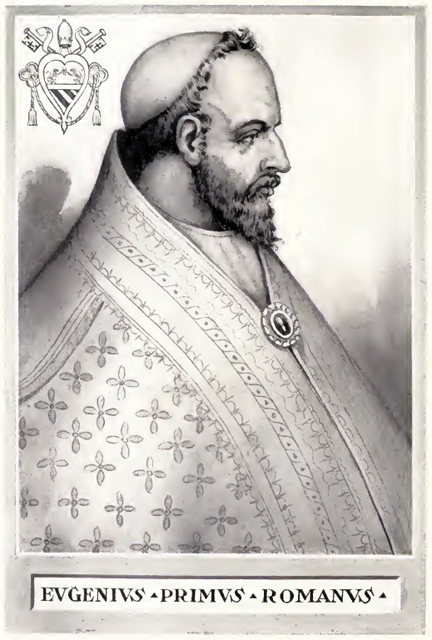654: Difference between revisions
Appearance
Content deleted Content added
Added details |
Added details of Constans II (Byzantine emperor |
||
| Line 10: | Line 10: | ||
<onlyinclude> |
<onlyinclude> |
||
=== By place === |
=== By place === |
||
| ⚫ | |||
==== Byzantine Empire ==== |
|||
| ⚫ | |||
* Emperor [[Constans II]] appoints his son [[Constantine IV]], age 2, a co-emperor (''[[Augustus (honorific)|Augustus]]''). He is to young to rule as monarch of the [[Byzantine Empire]], and his title remains a given name. |
|||
| ⚫ | |||
==== Europe ==== |
==== Europe ==== |
||
| Line 20: | Line 20: | ||
* King [[Penda of Mercia]] defeats the East Anglians at Bulcamp near [[Blythburgh]] ([[Suffolk]]). King [[Anna of East Anglia]] and his son [[Jurmin]] are killed.<ref>Warner, "The Origins of Suffolk", pp. 110–113</ref> |
* King [[Penda of Mercia]] defeats the East Anglians at Bulcamp near [[Blythburgh]] ([[Suffolk]]). King [[Anna of East Anglia]] and his son [[Jurmin]] are killed.<ref>Warner, "The Origins of Suffolk", pp. 110–113</ref> |
||
* [[Æthelhere of East Anglia|Æthelhere]] succeeds his brother Anna as king of [[Kingdom of East Anglia|East Anglia]] and accepts [[Mercia]]n overlordship (approximate date). |
* [[Æthelhere of East Anglia|Æthelhere]] succeeds his brother Anna as king of [[Kingdom of East Anglia|East Anglia]] and accepts [[Mercia]]n overlordship (approximate date). |
||
| ⚫ | |||
| ⚫ | |||
| ⚫ | |||
==== Asia ==== |
==== Asia ==== |
||
Revision as of 15:20, 4 January 2014
| Millennium: | 1st millennium |
|---|---|
| Centuries: | |
| Decades: | |
| Years: |
| 654 by topic |
|---|
| Leaders |
| Categories |
| Gregorian calendar | 654 DCLIV |
| Ab urbe condita | 1407 |
| Armenian calendar | 103 ԹՎ ՃԳ |
| Assyrian calendar | 5404 |
| Balinese saka calendar | 575–576 |
| Bengali calendar | 61 |
| Berber calendar | 1604 |
| Buddhist calendar | 1198 |
| Burmese calendar | 16 |
| Byzantine calendar | 6162–6163 |
| Chinese calendar | 癸丑年 (Water Ox) 3351 or 3144 — to — 甲寅年 (Wood Tiger) 3352 or 3145 |
| Coptic calendar | 370–371 |
| Discordian calendar | 1820 |
| Ethiopian calendar | 646–647 |
| Hebrew calendar | 4414–4415 |
| Hindu calendars | |
| - Vikram Samvat | 710–711 |
| - Shaka Samvat | 575–576 |
| - Kali Yuga | 3754–3755 |
| Holocene calendar | 10654 |
| Iranian calendar | 32–33 |
| Islamic calendar | 33–34 |
| Japanese calendar | Hakuchi 5 (白雉5年) |
| Javanese calendar | 545–546 |
| Julian calendar | 654 DCLIV |
| Korean calendar | 2987 |
| Minguo calendar | 1258 before ROC 民前1258年 |
| Nanakshahi calendar | −814 |
| Seleucid era | 965/966 AG |
| Thai solar calendar | 1196–1197 |
| Tibetan calendar | 阴水牛年 (female Water-Ox) 780 or 399 or −373 — to — 阳木虎年 (male Wood-Tiger) 781 or 400 or −372 |

Year 654 (DCLIV) was a common year starting on Wednesday (link will display the full calendar) of the Julian calendar. The denomination 654 for this year has been used since the early medieval period, when the Anno Domini calendar era became the prevalent method in Europe for naming years.
Events
By place
Byzantine Empire
- Emperor Constans II appoints his son Constantine IV, age 2, a co-emperor (Augustus). He is to young to rule as monarch of the Byzantine Empire, and his title remains a given name.
Europe
- King Recceswinth at Toledo draws up the Liber Judiciorum, a Visigothic code based on Roman law that establishes equality between Goths and Hispano-Romans without regard to racial or cultural differences.
Britain
- King Penda of Mercia defeats the East Anglians at Bulcamp near Blythburgh (Suffolk). King Anna of East Anglia and his son Jurmin are killed.[1]
- Æthelhere succeeds his brother Anna as king of East Anglia and accepts Mercian overlordship (approximate date).
Arabian Empire
- Muawiyah, governor of Syria, stations a large [[garrison on Cyprus. He conquers the Greek island of Kos in the Dodecanese.
- Arab invaders cross the Oxus River in what later will be Uzbekistan. Nomadic Turkic tribes continue to control Central Asia.
Asia
- November 24 – Emperor Kōtoku dies after a 9-year reign, Kōgyoku (his elder sister) is restored on the throne under the name Saimei.
- Takamuko no Kuromaro, Japanese diplomat, is sent to the Tang Dynasty again but dies upon his arrival in Chang'an.[2]
- Nakatomi no Kamatari, inner minister (naidaijin) of Japan, is granted the Shikwan (the Purple Cap).
By topic
Religion
- September 17 – Pope Martin I is taken to Constantinople and publicly humiliated for having condemned the Byzantine emperor Constans II (see 649). He is eventually deposed and succeeded by Eugene I as the 75th pope of the Catholic Church.
- Philibert, Frankish abbot, receives a gift from king Clovis II of Neustria and founds Jumièges Abbey in Normandy.
Births
Deaths
- Anna, king of East Anglia (approximate date)
- Dúnchad mac Conaing, king of Dál Riata (modern Scotland)
- January 16 – Gao Jifu, chancellor of the Tang Dynasty (b. 596)
- Jurmin, Anglo-Saxon prince (approximate date)
- November 24 – Kōtoku, emperor of Japan (b. 596)
- June 1 – Pyrrhus, patriarch of Constantinople
- Takamuko no Kuromaro, Japanese diplomat
